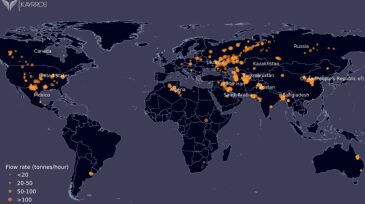Data mining/analysis
This work presents the development of fast predictive models and optimization methodologies to evaluate the potential of carbon-dioxide EOR and storage operations quickly in mature oil fields.
The authors of this paper apply a deep-learning model for multivariate forecasting of oil production and carbon-dioxide-sequestration efficiency across a range of water-alternating-gas scenarios using field data from six legacy carbon-dioxide enhanced-oil-recovery projects.
This paper describes a data-driven well-management strategy that optimizes condensate recovery while preserving well productivity.
-
This column is intended to provide a starting point and a roadmap for professionals who want to learn data science and are struggling with the question, “Where do I start?”
-
The complete paper uses 3,782 unconventional horizontal wells to analyze the effect of proppant volume and the length of the perforated lateral on short- and long-term well productivity across the Permian Basin.
-
Eni and IBM developed a cognitive engine exploiting a deep-learning approach to scan documents, searching for basin geology concepts and extracting information about petroleum system elements.
-
Where there are data generated and collected, there is analysis of the data. The ongoing digital transformation in the industry has opened many opportunities for professionals skilled in data analytics.
-
Technology company Proserv Controls has formed an alliance with software engineering firm Intelligent Plant in an effort to combine their expertise to improve control systems and data analysis.
-
Emerson has launched cloud-native software designed to find opportunities for field development through data mining and automation. The software, called SpeedWise Reservoir Opportunity, was developed in collaboration with Quantum Reservoir Impact.
-
The complete paper presents a methodology designed for optimally matching drill bits, mud motors, and bottomhole-assembly components for reduced failure risks and improved drilling performance.
-
A recent datathon and the team that took home the grand prize help paint a picture of both the industry’s’ digital transformation and how oil and gas engineers are embracing it to navigate uncertain times.
-
Using a European Space Agency satellite, data analytics firm Kayrros pinpointed global locations of methane emissions and recorded a 32% increase in the overall volume of methane emitted from large leaks compared with the first 8 months of 2019.
-
The pandemic has been an unexpected jolt for the global economy, bringing many industries to a halt. Murphy has taken a step forward into a digital future by designing and implementing a COVID-19 tracking app that is easy to use, quick, and convenient.












